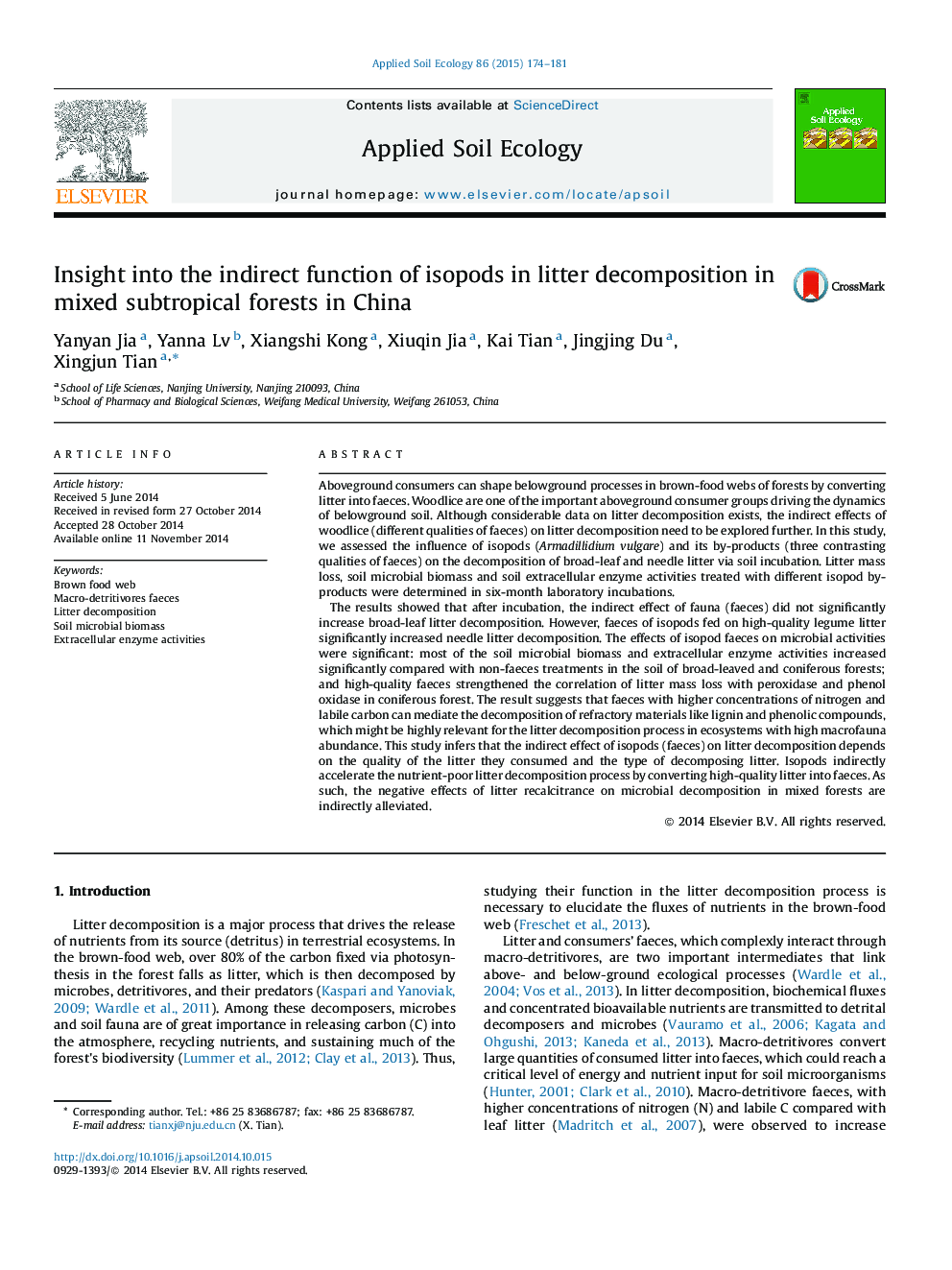| کد مقاله | کد نشریه | سال انتشار | مقاله انگلیسی | نسخه تمام متن |
|---|---|---|---|---|
| 4382105 | 1617797 | 2015 | 8 صفحه PDF | دانلود رایگان |
• Effects of isopod (Armadillidium vulgare) and its byproducts (three contrasting qualities of faeces) on litter decomposition system were investigated.
• The indirect effect of isopods (faeces) on litter decomposition depends on the quality of the litter they consumed and the type of decomposing litter.
• Faeces with higher concentrations of nitrogen and labile carbon can mediate the decomposition of refractory materials like lignin and phenolic compounds.
• Isopods indirectly accelerate the nutrient-poor litter decomposition process by converting high-quality litter into faeces.
Aboveground consumers can shape belowground processes in brown-food webs of forests by converting litter into faeces. Woodlice are one of the important aboveground consumer groups driving the dynamics of belowground soil. Although considerable data on litter decomposition exists, the indirect effects of woodlice (different qualities of faeces) on litter decomposition need to be explored further. In this study, we assessed the influence of isopods (Armadillidium vulgare) and its by-products (three contrasting qualities of faeces) on the decomposition of broad-leaf and needle litter via soil incubation. Litter mass loss, soil microbial biomass and soil extracellular enzyme activities treated with different isopod by-products were determined in six-month laboratory incubations.The results showed that after incubation, the indirect effect of fauna (faeces) did not significantly increase broad-leaf litter decomposition. However, faeces of isopods fed on high-quality legume litter significantly increased needle litter decomposition. The effects of isopod faeces on microbial activities were significant: most of the soil microbial biomass and extracellular enzyme activities increased significantly compared with non-faeces treatments in the soil of broad-leaved and coniferous forests; and high-quality faeces strengthened the correlation of litter mass loss with peroxidase and phenol oxidase in coniferous forest. The result suggests that faeces with higher concentrations of nitrogen and labile carbon can mediate the decomposition of refractory materials like lignin and phenolic compounds, which might be highly relevant for the litter decomposition process in ecosystems with high macrofauna abundance. This study infers that the indirect effect of isopods (faeces) on litter decomposition depends on the quality of the litter they consumed and the type of decomposing litter. Isopods indirectly accelerate the nutrient-poor litter decomposition process by converting high-quality litter into faeces. As such, the negative effects of litter recalcitrance on microbial decomposition in mixed forests are indirectly alleviated.
Journal: Applied Soil Ecology - Volume 86, February 2015, Pages 174–181
